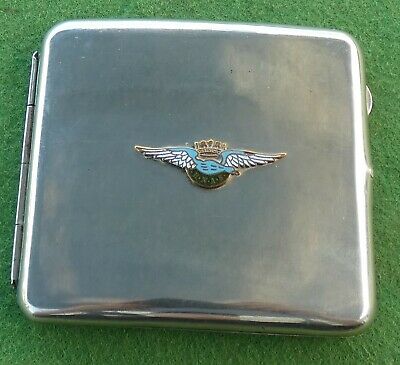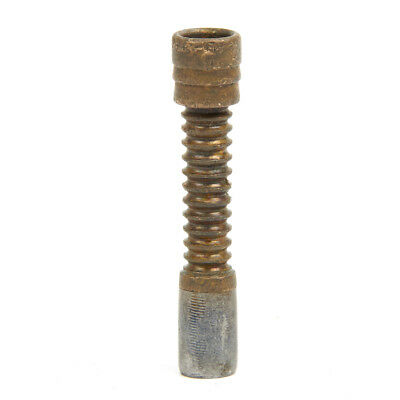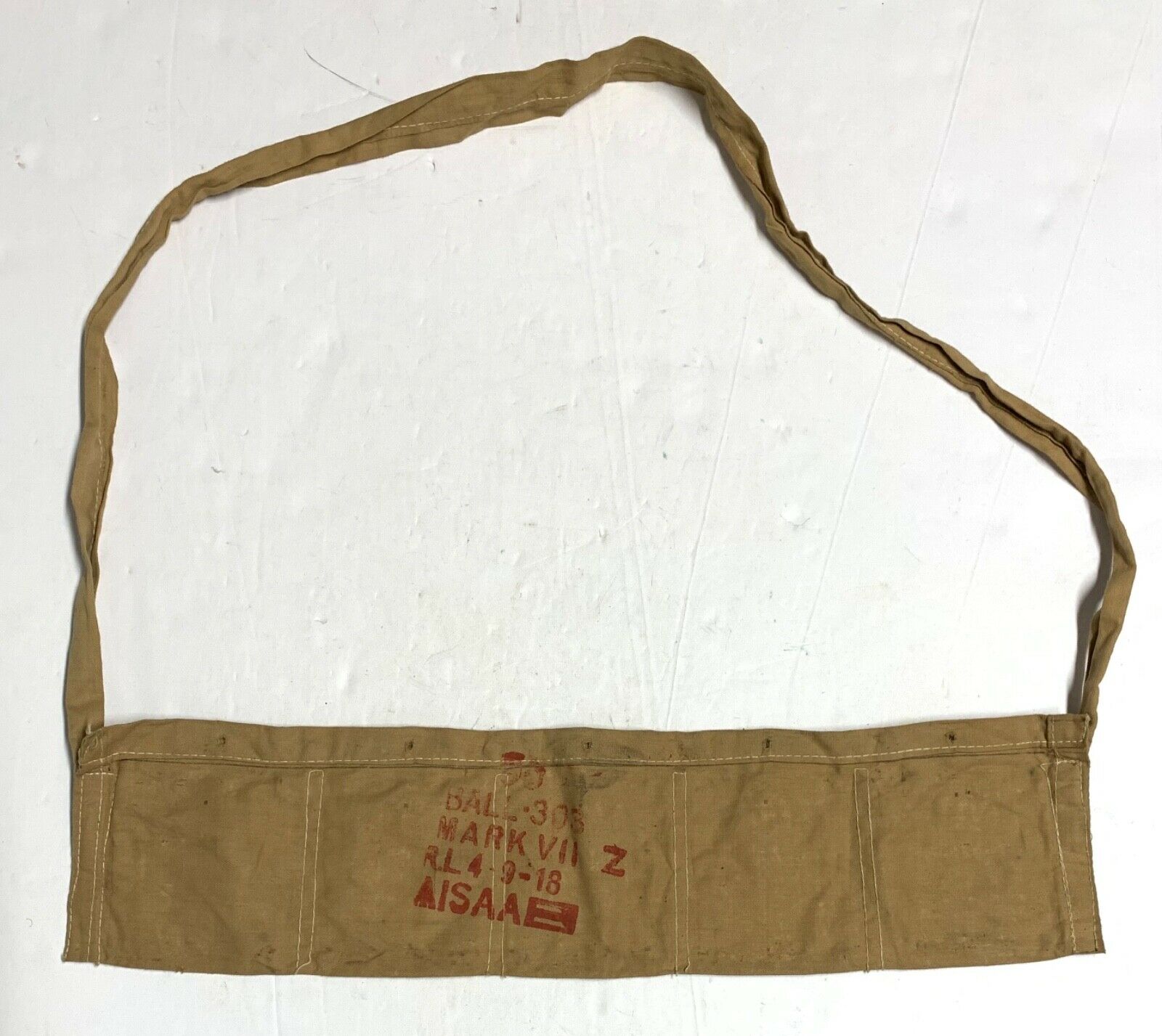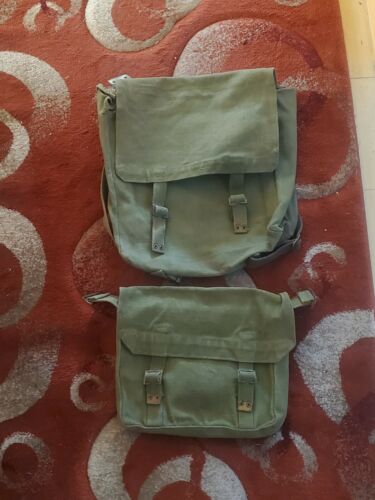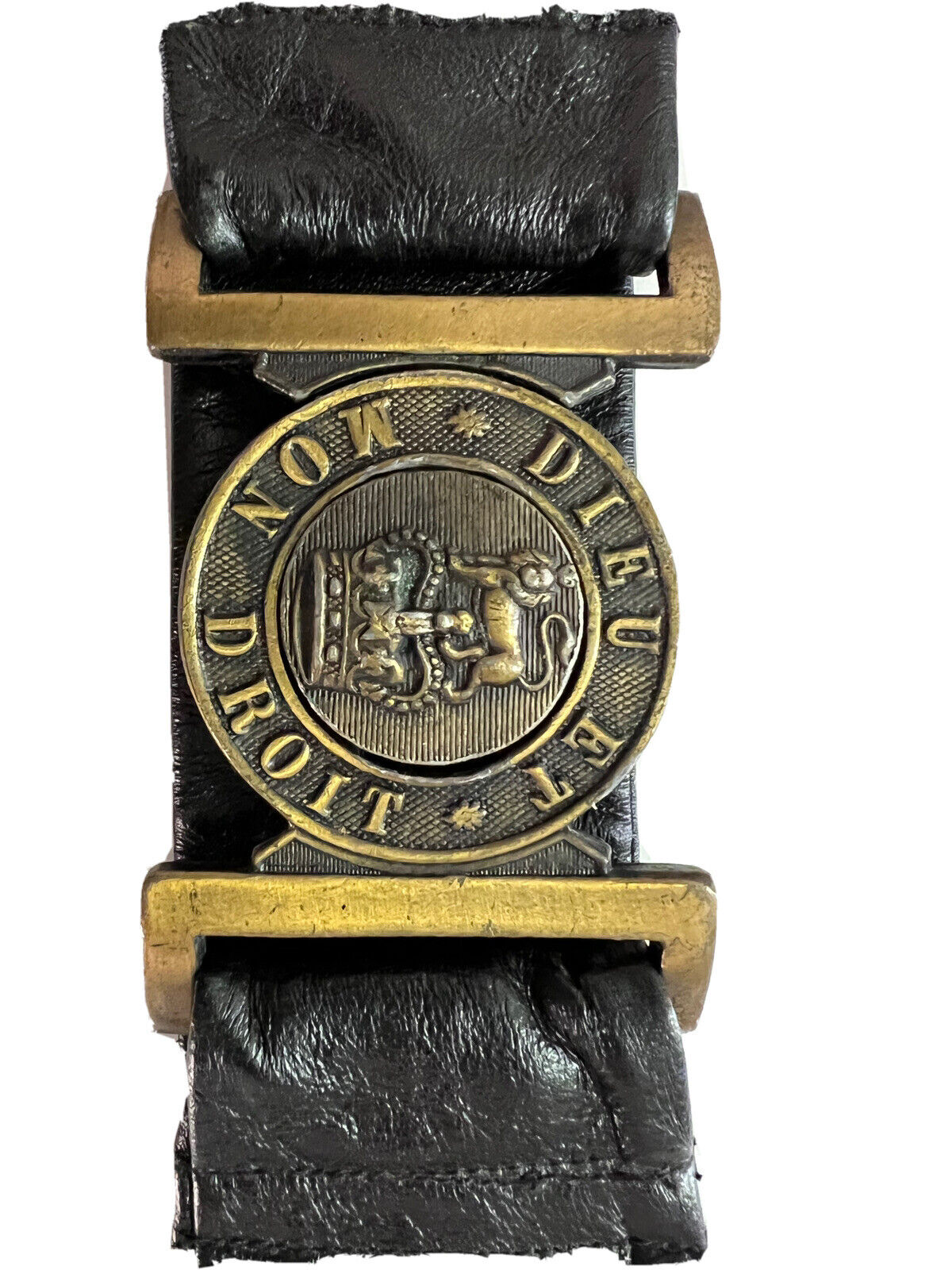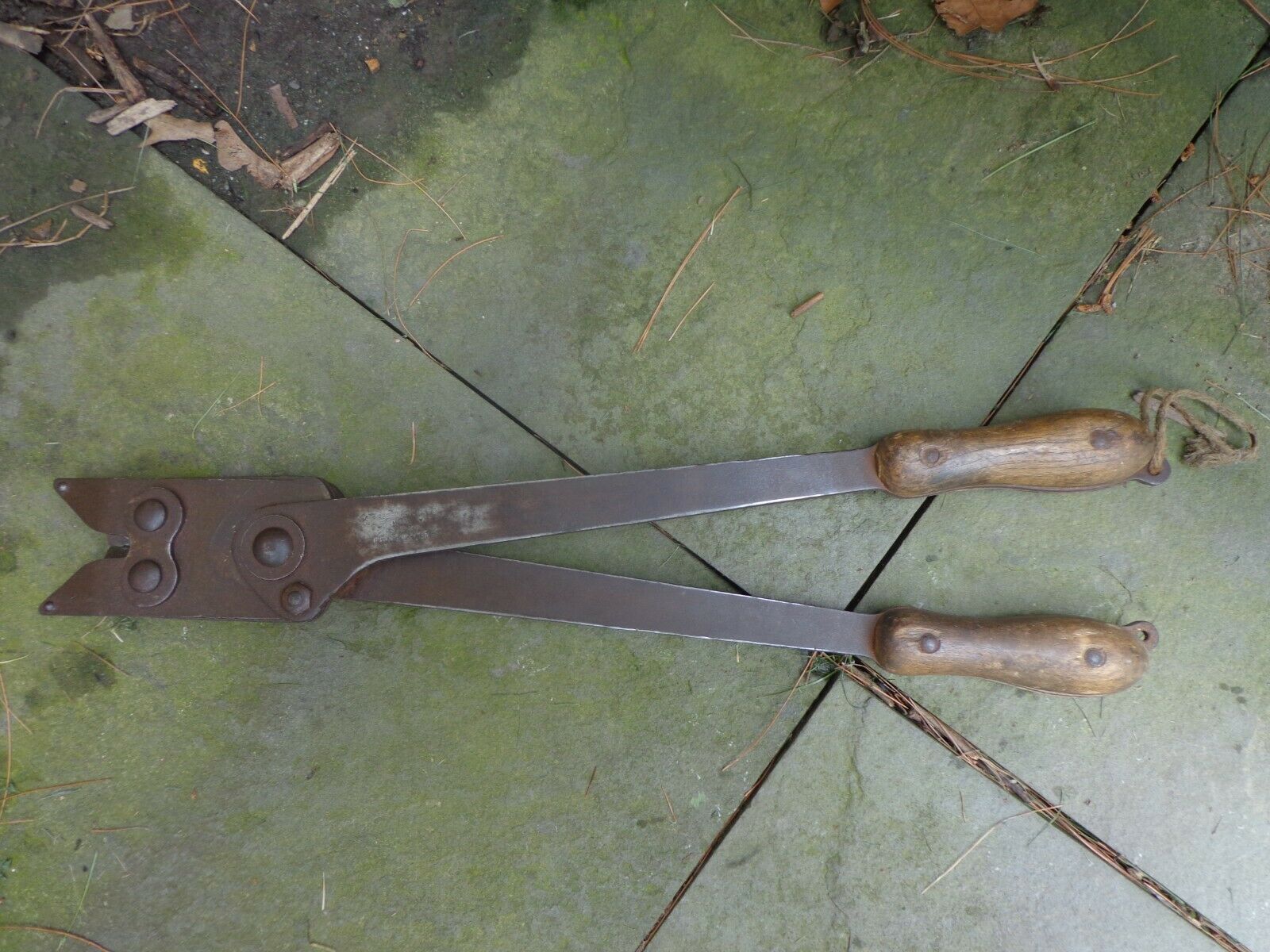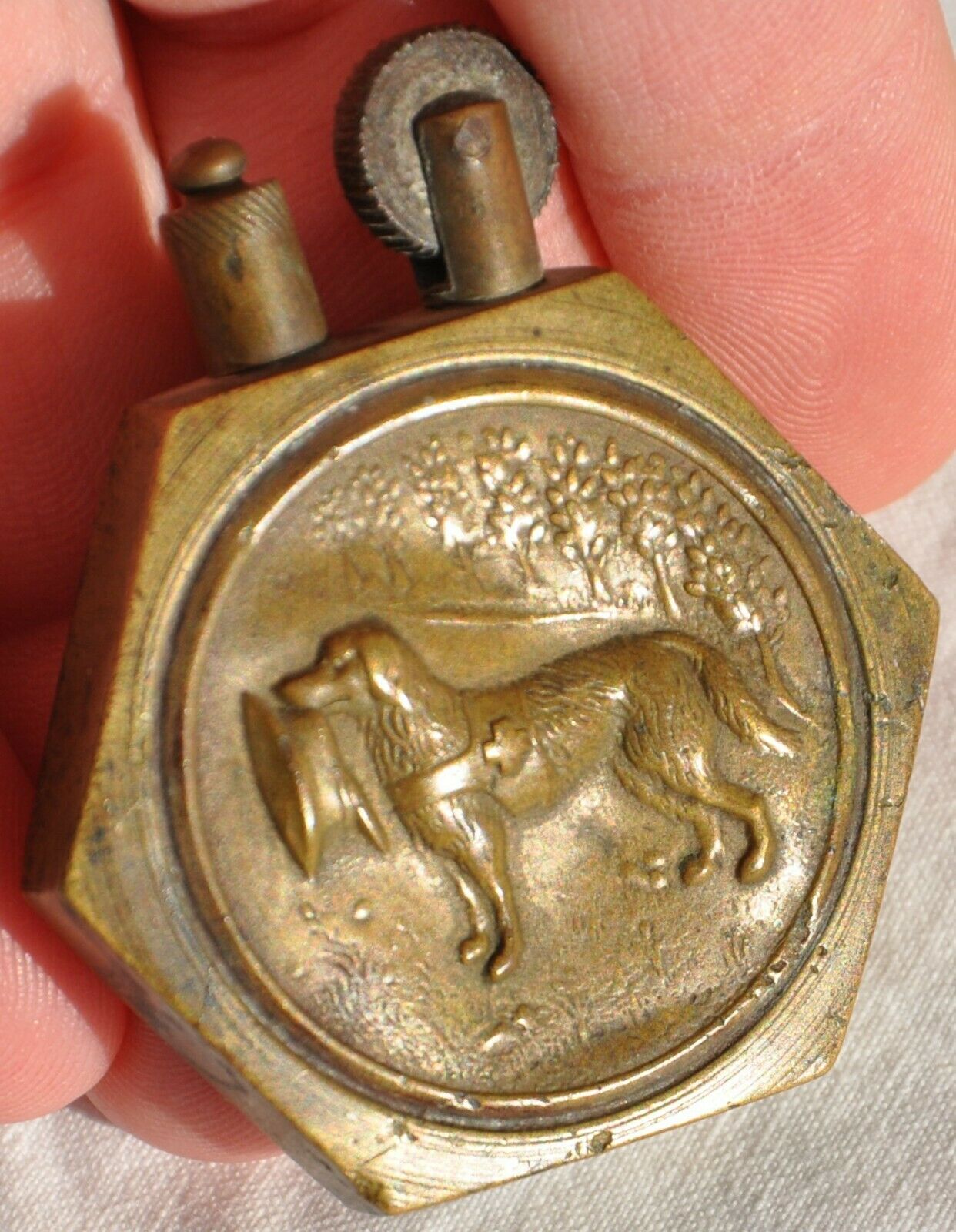-40%
RNAS Pilot's CIGERETTE CASE Enamel Royal Navy Air Service WINGS logo R.N.A.S.
$ 52.79
- Description
- Size Guide
Description
Small damage to the eagle's enamelotherwise perfect working order
The Royal Naval Air Service (RNAS) was the air arm of the Royal Navy, under the direction of the Admiralty's Air Department, and existed formally from 1 July 1914[1] to 1 April 1918, when it was merged with the British Army's Royal Flying Corps to form the Royal Air Force, the world's first independent air force.
Background
In 1908, the British Government recognised the military potential of aircraft. The Prime Minister, H. H. Asquith, approved the formation of an "Advisory Committee for Aeronautics" and an "Aerial Sub-Committee of the Committee of Imperial Defence". Both committees were composed of politicians, army officers and Royal Navy officers. On 21 July 1908 Captain Reginald Bacon, who was a member of the Aerial Navigation sub-committee, submitted to the First Sea Lord Sir John Fisher that a rigid airship based on the German Zeppelin be designed and constructed by the firm of Vickers. After much discussion on the Committee of Imperial Defence the suggestion was approved on 7 May 1909. The airship, named Mayfly, never flew and broke in half on 24 September 1911. The then First Sea Lord, Sir Arthur Wilson, recommended that rigid airship construction be abandoned.
On 21 June 1910, Lt. George Cyril Colmore became the first qualified pilot in the Royal Navy. After completing training, which Colmore paid for out of his own pocket, he was issued with Royal Aero Club Certificate Number 15.
In November 1910, the Royal Aero Club, thanks to one of its members, Francis McClean, offered the Royal Navy two aircraft with which to train its first pilots. The club also offered its members as instructors and the use of its airfield at Eastchurch on the Isle of Sheppey. The Admiralty accepted and on 6 December the Commander-in-Chief, The Nore promulgated the scheme to the officers under his jurisdiction and requested that applicants be unmarried and able to pay the membership fees of the Royal Aero Club. The airfield became the Naval Flying School, Eastchurch. Two hundred applications were received, and four and four were accepted: Lieutenant C. R. Samson, Lieutenant A. M. Longmore, Lieutenant A. Gregory and Captain E. L. Gerrard, RMLI.
History
Commander C Samson of the RNAS takes off from HMS Hibernia in his modified Shorts S.38 “hydro-aeroplane” to be the first pilot to take off from a ship underway at sea.
After prolonged discussion on the Committee of Imperial Defence, the Royal Flying Corps was constituted by Royal Warrant on 13 April 1912. It absorbed the nascent naval air detachment and also the Air Battalion of the Royal Engineers. It consisted of two wings with the Military Wing making up the Army element and Naval Wing, under Commander C. R. Samson. A Central Flying School staffed by officers and men of both the navy and the army was created at Upavon for the pilot training of both wings, and opened on 19 June 1912 under the command of Captain Godfrey Paine, a naval officer. The Naval Wing, by the terms of its inception was permitted to carry out experimentation at its flying school at Eastchurch. The Royal Flying Corps, although formed of two separate branches, allowed for direct entry to either branch through a joint Special Reserve of Officers, although soon the Navy inducted new entries into the Royal Naval Reserve. In the summer of 1912, in recognition of the air branch's expansion, Captain Murray Sueter was appointed Director of the newly formed Air Department at the Admiralty. Sueter's remit as outlined in September 1912 stated that he was responsible to the Admiralty for "all matters connected with the Naval Air Service."
In the same month as the Air Department was set up, four naval seaplanes participated in Army Manoeuvres. In 1913 a seaplane base on the Isle of Grain and an airship base at Kingsnorth were approved for construction. The same year provision was made in the naval estimates for eight airfields to be constructed, and for the first time aircraft participated in manoeuvres with the Royal Navy, using the converted cruiser Hermes as a seaplane carrier.
Because of the worldwide pandemic, my New Zealand-Worldwide postage costs have greatly increased
Especially with the (Recently-adopted by NZPO) PURE EVIL of "Volumetric" pricing
The listed postage cost is the ONLY tracked service out of New Zealand (Required for PayPal)
If you do NOT REQUIRE tracked delivery? then please opt for another type of payment
The listed cost of postage for this badge is charged at 500 Grams (Over 1 Pound) so you COULD include many other badges in same parcel at NO additional postage cost
STANDARD Air Mail delivery (UNTRACKED) will cost about US.90 and could still have 2-3 badges in same package
This service has been PERFECTLY SAFE for the last 23 years that I have been selling here on eBay
However the worldwide pandemic has GREATLY SLOWED all forms of postage or courier delivery so please do try await patiently
If you buy more than one badge ?
We will happily COMBINE these....... so that you pay only a single postage charge
All badges are unconditionally guaranteed 100% GENUINE for life, that guarantee INCLUDES their cost of postage BOTH ways
The "for life" part ? means that you cannot ask for a refund after you have died :-)
Do please VIEW my ***23 + years *** FEEDBACK selling history on E-Bay !!
Any questions please message me
Postage
First Class AirMail (6-10 DAYS)
New Zealand residents NZPO Courier POSTAGE = {{detail_product_description}}.00 (FREE)
But SORRY but you pay GST @15% on purchase price :-(
That because WE MUST PAY G.S.T. on all locally-delivered ebay sales
An invoice (GST RECEIPT) will be issued IF REQUESTED?
